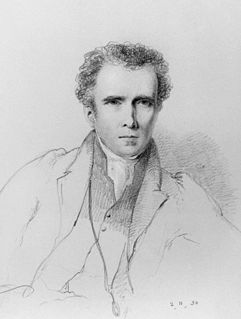A Quote by H. M. Tomlinson
As to the sea itself, love it you cannot. Why should you? I will never believe again the sea was ever loved by anyone whose life was married to it. It is the creation of omnipotence, which is not of humankind and understandable, and so the springs of its behavior are hidden.
Related Quotes
I did not think I should be ever loved: do you indeed Love me so much as now you say you do? Ask of the sea-bird if it loves the sea, Ask of the roses if they love the rain, Ask of the little lark, that will not sing Till day break, if it loves to see the day: And yet, these are but empty images, Mere shadows of my love, which is a fire So great that all the waters of the main Can not avail to quench it.
As the river enters the sea and loses itself in the sea, so Krishnamurti has entered into that Life which is represented by some as The Christ, by others as The Buddha, by others still, as the Lord Maitreya. Hence Krishnamurti as an entity fully developed has entered into the Sea of Life and is the Teacher, because the moment you enter into that Life -which is the fulfilment of all Teachers, which is life of all the Teachers - the individual as such ceases.
Thought cannot avoid the ethical or reverence and love for all life. It will abandon the old confined systems of ethics and be forced to recognize the ethics that knows no bounds. But on the other hand, those who believe in love for all creation must realize clearly the difficulties involved in the problem of a boundless ethic and must be resolved not to veil from humankind the conflicts which this ethic will involve us, but allow us really to experience them. To think out in every implication the ethic of love for all creation this is the difficult task which confronts our age.
Every time I look at it, It looks back at me I love the sea, its waters are blue And the sky is too And the sea is very dear to me If when I grow up and the sea is still there Then I’ll open my eyes and smell the fresh air Because the sea is very dear to me The sea is very calm and that’s why I like it there The sand is brand new and the wind blows in my hair And the sea is very dear to me.
A social order bent on producing wealth as an end in itself cannot avoid the creation of a people whose souls are superficial and whose daily life is captured by sentimentalities. They will ask questions like “why does a good God let bad things happen to good people ” such people cannot imagine that a people once existed who produced and sang the psalms. If we learn to say “God ” we will do so with the prayer “My God my God why have you forsaken me?
There are no footprints on the sea and no road-signs, not a single guard-stone or post, and no bends, only paths of light and dark from which to choose, the choice is always a difficult navigation and the storm's wingspan immeasurable as the depths and the horizon, but the sea holds you in its mighty hand your life is a sea-blue tale of love and death.
Love, which is lust, is the Lamp in the Tomb.
Love, which is lust, is the Call from the Gloom.
Love, which is lust, is the Main of Desire.
Love, which is lust, is the Centric Fire.
So man and woman will keep their trust,
Till the very Springs of the Sea run dust.
Yea, each with the other will lose and win,
Till the very Sides of the Grave fall in.
For the strife of Love's the abysmal strife,
And the word of Love is the Word of Life.
And they that go with the Word unsaid,
Though they seem of the living, are damned and dead.
The woods are never solitary — they are full of whispering, beckoning, friendly life. But the sea is a mighty soul, forever moaning of some great, unshareable sorrow, which shuts it up into itself for all eternity. We can never pierce its infinite mystery — we may only wander, awed and spellbound, on the outer fringe of it. The woods call to us with a hundred voices, but the sea has one only — a mighty voice.
The Sea of Galilee and the Dead Sea are made of the same water. It flows down, clean and cool, from the heights of Herman and the roots of the cedars of Lebanon. the Sea of Galilee makes beauty of it, the Sea of Galilee has an outlet. It gets to give. It gathers in its riches that it may pour them out again to fertilize the Jordan plain. But the Dead Sea with the same water makes horror. For the Dead Sea has no outlet. It gets to keep.






































